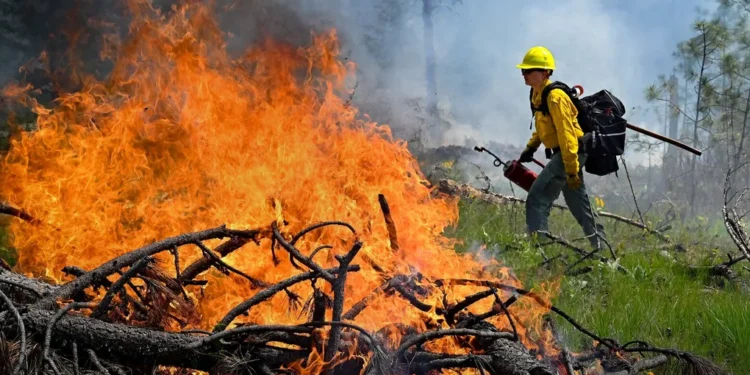A new Washington state law that took effect Sunday is making it easier for pet owners to evacuate safely with their animals during wildfires and natural disasters. House Bill 1201, sponsored by Rep. Mari Leavitt (D-University Place), requires local governments to factor in animal needs when preparing for emergency evacuations.
Under the law, cities and counties are now expected to plan for co-sheltering, providing space where both people and their pets can stay together during evacuations caused by wildfires, extreme weather, or other emergencies.
Supporters say the legislation fills a major gap in disaster response. “One of the most common reasons people refuse to evacuate is because they can’t bring their pets,” said Brittany Benesi, the ASPCA’s senior director of state legislation for the Western division. “This law helps reduce that risk by keeping families, human and animal, together.”
The ASPCA played a major role in supporting the bill, alongside Washington residents concerned about pet safety. According to the organization, research has consistently shown that pet ownership significantly impacts evacuation behavior. A 2012 study from Latin America found that 75% of pet owners would refuse to leave without their animals, even if it put their own safety at risk.
While the new law sets a clear goal, it also gives flexibility to local jurisdictions. Language in the bill notes that implementation should be done “to the extent practicable,” meaning communities aren’t penalized if they lack the funding or resources to establish pet-friendly shelters immediately.
In Spokane County, officials say they’re already ahead of the curve. Heather Kitchen, who handles animal preparedness for Spokane County Emergency Management, said the area has longstanding plans in place for pet-inclusive evacuations. In the event of a wildfire, she can activate the Spokane Humane Evacuation Animal Rescue Team (HEART), a nonprofit that works closely with government agencies.
“We’ve got partnerships with the Red Cross and often use the Spokane County Fairgrounds,” Kitchen said. “That space has housed everything from cats and dogs to cows, sheep, horses, even iguanas and emus.”
Kitchen said she hopes the law will prompt other counties to build out similar plans, even if they currently lack funding. “It’s about raising the standard. Every community deserves to protect its animals the way we protect people,” she said.
Pet owners are also encouraged to take personal precautions. Susan Anderson, a Washington-based senior director of disaster response for the ASPCA, recommends several steps: update pet ID tags and microchips, pack a go-bag with emergency supplies, and identify a backup caretaker outside the evacuation area.
Above all, Anderson stressed, “Never leave your pet behind or tied up. That could expose them to life-threatening danger.”







